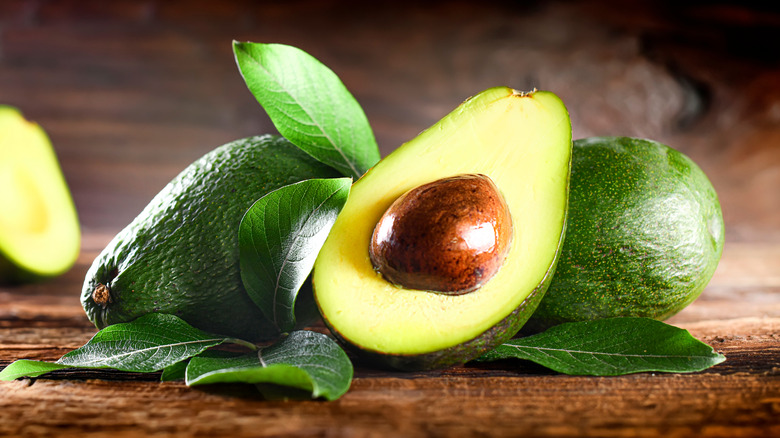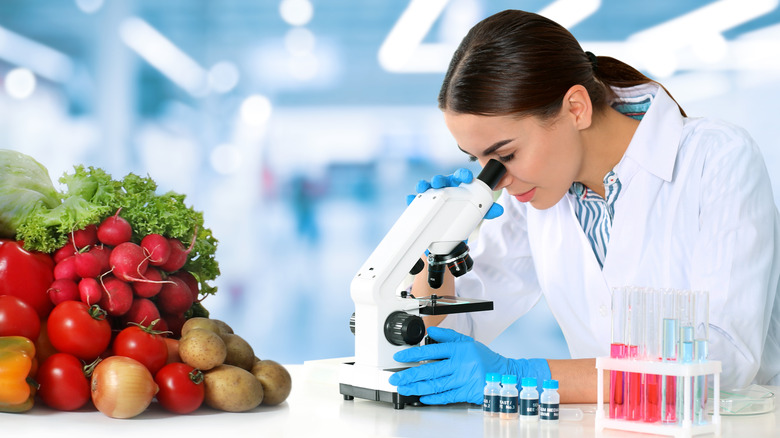Could Faux Avocados Be The Next Big Thing On The Sustainability Menu?
Sustainability is driving advancements in food technology, and significant strides have been taking place in the cultivated meat industry — but what about produce? Consuming out-of-season fruits and vegetables requires more harmful resources like fertilizers and pesticides than in season, explains Medium. So, to enjoy avocados all year long, you pay a price — and no, it's not the extra charge at Chipotle, although the reasoning is similar.
As the world's biggest consumer of the fruit, according to The Guardian, a lot of the United States' avocado supply is outsourced from other countries. Despite the fruit's year-round abundance in grocery stores and restaurant menus, they're only in season from March to July. At any other time of the year, the avocados on your morning toast are likely being flown in from countries like Mexico, Chile, and Peru — producing more greenhouse gas emissions and fueling deforestation along the way (via Michigan State University).
Introducing the ecovado
Inspired by the many start-up companies using technology to replicate unsustainable foods with sustainable ingredients, designer Arina Shokouhi set off to design a new, low-impact version of avocado: the "ecovado" (via The Guardian). As the final year project for her Material Futures masters at Central Saint Martins, per Dezeen, Shokouhi connected with Jack Wallman, a scientist at the Food Innovation Centre in Nottingham, England, who helped her analyze the molecular composition of avocados and identify potential replacement ingredients.
When finding replacements, Shokouhi prioritized ingredients that were both local and low-impact. Some preferred substitutes like olive oil, which is similar to the fat from avocados, were sourced from locations that were too far away, so she opted for rapeseed oil instead. To recreate avocado's creamy consistency, she chose fava beans, and gave it a nutty taste using creamed hazelnuts. The creation is encased by a faux avocado skin made from wax and centered with one whole nut to recreate the look, taste, and texture of an actual avocado without the environmental impact.
Known as the ecovado, the sustainable fruit invention is not yet in production— but more could be coming. Shokouhi told The Guardian, "In the future, it would be fun to make some other ecovados for different countries. This first one was a British ecovado. What, for example, would Japanese ecovado be? What ingredients are local in Japan?"

